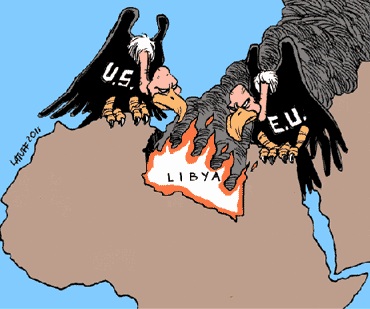Antônio Moreira to the Editor,
(translated by metro.org.br)
I suggested the publication of this enlightening article by the Minister of Foreign Affairs, Antonio Patriota, about the very pressing matter of the rebellions occurring in some arab countries and especially in Libya where this situation is ensuing on a dramatic scale. I believe that the advertisement of this article will clarify the position of Brazil’s Diplomacy on the matter, which is undertaking an ever more important role in the world today. Transcribed from the newsletter “Folha de São Paulo”, 1º of September 2001 edition, page A3.
Human Rights and Diplomatic Action
Antonio de Aguiar Patriota
We should avoid attitudes that contribute to establishing an automatic link between taking coercive measures and the promotion of democracy.
Committed at a national and constitutional level to human rights, to democracy, to economic and social progress, Brazil incorporates in full these values in its foreign affairs.
In view of the events of the Arab Spring, we express our solidarity in the social mobilization for a greater freedom of expression, as well as political and institutional advancement for countries submerged in authoritarian regimes. In both the Security Council and the Council for Human Rights of the UN, we condemned the violations committed by the Libyan and Syrian regimes.
While ensuring that our commitment to the values that define us as a society translates into diplomatic action, Brazil always works for the strengthening of multilateralism and particularly for that of the United Nations.
The UN is the venue of choice for making global decisions, especially those relating to international peace, security and coercive actions, which include sanctions and the use of force.
Military action without the legitimacy of the UN Security Council, while bringing discredit to international powers subscribed by the international community as a whole, tend to become a factor of instability, violence and human rights violations on a large scale, as demonstrated by the military intervention in Iraq.
Let us not forget that the first human right is the right to live. The first obligation of the international community faced with a crisis situation is to avoid aggravating tensions.
Each time such violence is spread, the first victims are the ones most vulnerable: children, women, the elderly, and the underprivileged.
In addition to defending the legality of our enforcement actions in accord with the UN Charter and international law, we should always take appropriate measures, with eyes on the desired results: the promotion of democracy, human rights, the protection of civilians, the creation of conditions of stability that create opportunities to generate economic and social progress.
The international order is not strengthened by freely made interpretations from Security Council mandates. And, where the order is weakened, who suffers most are the weakest. As rightly pointed out by Professor Richard Falk of Princeton University, in a Folha de São Paulo interview, there was in the case of Libya, significant gaps between what was authorized by the Security Council and NATO action.
The relationship between the promotion of international peace and security and the protection of individual rights has evolved significantly over the past decades, parting from the constitution of the United Nations in 1945. One cannot say that this evolution, positive on the whole, is the work of one group of countries in particular.
It is the result of a clash of ideas in which the most militarily powerful had not necessarily been at the forefront of the demands for justice and equity. I remember that the first drafts of the UN Charter included scarce references to human rights for reasons that if looked at today may seem very surprising.
Robert C. Hildebrand, who reports the negotiations of the document in his “Dumbarton Oaks”, credited these circumstances due to the fact that the United States feared questioning of the racial segregation still existing in the country and the concern of the United Kingdom that its sovereignty over a vast colonial empire could be put into check – which effectively happened.
The struggle against the apartheid provides an eloquent example of joint action in the developing world against practices that violate human dignity. When the subject was taken to the UN Security Council, the objections to apply sanctions against the minority regime of South Africa were all from Western permanent members.
Since the adoption of the UN Charter, the relationship between promoting human rights and ensuring international peace went through several phases. It suffered paralysis due to the ideological rivalry of the Cold War; benefited from the brief moment of international consensus between the immediate post-Cold War and the international action for reversing the Iraqi invasion of Kuwait.
In the mid-90’s voices emerged that, motivated by the just goal of preventing the inaction of the international community to allow for the bloody episodes like Bosnia or the genocide in Rwanda, forged the concept “the responsibility to protect.”
However, the collective responsibility does not need to express itself through coercive actions in order to be effective. Therein followed particularly interventionist and militarist voices in the so called “West” that continue to generate controversy and debate.
The UN Charter, as is known, provides the possibility of recourse for enforced action, based on procedures that include the power to veto held by current five permanent members of Security Council-the organ elected for its essential and non transferable competency for the maintenance of peace and international security.
Assuming the responsibility to protect inside the regulations of the United Nations would have to sustain, in a way that, by the characterization that, in certain specific situations, violations implying threats to peace and security.
For Brazil, it is fundamental that, in exercising the responsibility to protect via military action, the international community, in addition to having to count on the corresponding multilateral mandate, observes another precept: the responsibility to protect. The use of force can only be contemplated as a last resort.
To cut corners and precipitate the use of coercive measures goes against the “rationale” of international law and the UN Charter. If our major goals include the determined defense of human rights in their universality and indivisibility, as enshrined in the Vienna Conference of 1993, Brazil’s performance must be defined on a case by case basis in rigorous analysis of the circumstances and the most effective ways to treat each situation specific.
There is no room, in the establishment of consistent policies for human rights, for naive generalizations or rhetoric amenities.
We must avoid, most especially, attitudes that contribute – albeit indirectly and inadvertently – to establish a link between coercion of democracy and of human rights. We cannot run the risk of regressing to a state in which military force becomes the arbiter of justice and the promoter of peace.
Antonio de Aguiar Patriota’s is Brazil’s Minister of Foreign Affairs.
————————————————-
Bruna sobre o artigo “Cinema, Uma Paixão – Balzac e a Costureirinha Chinesa”
De Vânia Rodríguez
Para Baixar o Filme “Balzac e a Costureirinha Chinesa”: http://fwd4.me/0AQT
———————————————-
Verly, autor, sobre seu artigo “Verdadeiras Verdades”
Olha gente, eu quis mostrar, especialmente para quem acredita em tudo que sai pela voz do povo ou, hoje em dia pela internet, que a maior parte é lenda. São chamadas lendas urbanas.
E como tem mentira espalhada por aí. E o MAIS SÉRIO: COMO TEM GENTE QUE ACREDITA EM TUDO!
————————————————
Samara sobre o artigo “Moradores tentam interdição de Depósito de Gás”
deixe o povo trabalhar cambada de mineiros idiotas isso não tem nada haver porque sou uma revendedora em sao paulo .
——————————————
Naiara sobre a poesia“Quisera ser….” de Nádia Campos
Liiiindaaa!
—————————-
Jack Maddux W. on “Slaves of the 21st Century” of Antonio Carlos Santini
Lord Jesus, Lord Budha, Ramatis, Shaman Gideon Dos Lakotas, St. Francis, Mahatma Gandhi, what other proof do you want?
The size of a man is the exact size of his endevours/works.
Our ego, that is the rational, logical mind/brain, is a three dimentional instrument given to us to experience the relative world. It can never be satisfied, it can never feel complete, it will always be changing its ideas about things. As long as we are belittled into its soverignty, we are truly slaves. The question is then: WHO are you?
haribol!
———————————————–
Jack Maddux W. on “Reply to the Commentary of the reader Adriano” of Carlos Bittencourt Almeida
I would say that in my opinion, men are entirely more sexual than woman. God played dirty when he made man… our members stay totally swollen untill we get some release! Women on the other hand do not. So, if you look at it that way, we can perhaps can give them a little more slack. right…? c’mon!
Related Articles













